-
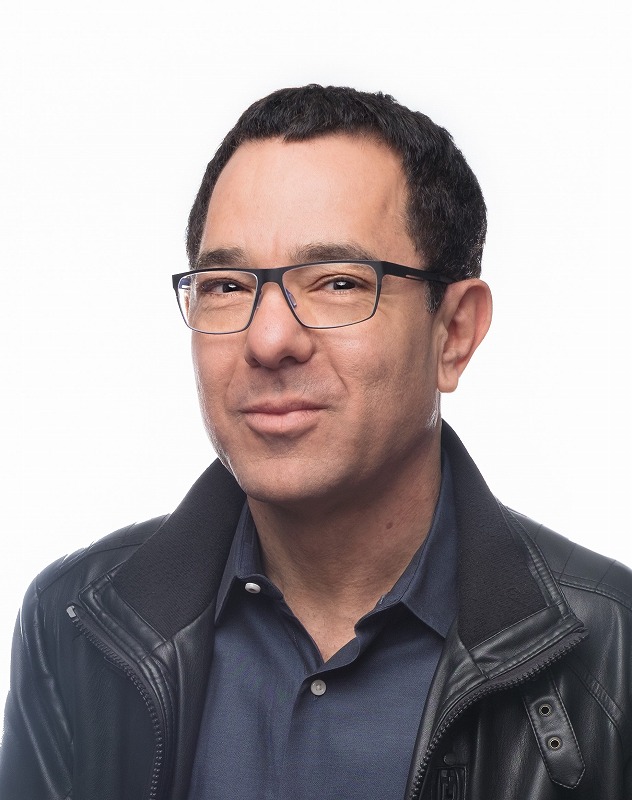
- Tony Seba
Author / Educator / Co-founder, RethinkX - Tony Seba is a world-renowned thought leader, author, speaker, educator, angel investor and Silicon Valley entrepreneur. He is the author of the #1 Amazon best-selling book “Clean Disruption of Energy and Transportation”, “Solar Trillions” and “Winners Take All”, and co-author of “Rethinking Transportation 2020-2030”, “Rethinking Food and Agriculture 2020-2030”, “Rethinking Humanity: Five Foundational Sector Disruptions, the Lifecycle of Civilizations, and the Coming Age of Freedom” and “Rethinking Energy 2020-2030: 100% Solar, Wind and Batteries Is Just the Beginning”. He has been featured in several movies and documentaries including Bloomberg’s Forward Thinking: A Sustainable World, 2040, and SunGanges. He is recipient of many awards including the Savvy Award (2019), Solar Future Today’s Visionary Influencer Award (2018), and Clean Energy Action’s 2017 Sunshine Award. He is the creator of the Seba Technology Disruption Framework™. His work focuses on technology disruption, the convergence of technologies, business model innovation, and product innovation that is leading to the disruption of the world’s major industries. He has been a keynote speaker at hundreds of global events and organizations including Google, the European Commission, Davos, COP21, CLSA, J.P. Morgan, Nomura, National Governors Association, Conference on World Affairs, the Global Leaders Forum, Intersolar and China EV100. He has taught thousands of entrepreneurs and corporate leaders at Stanford Continuing Studies. He has a Stanford MBA and an MIT degree in Computer Science and Engineering.
- Tony Seba
-

- Amory B. Lovins
Cofounder and Chairman Emeritus, Rocky Mountain Institute / Adjunct Professor of Civil and Environmental Engineering, and Scholar, Precourt Institute for Energy, Stanford University - For nearly five decades, Amory B. Lovins has been advising firms and governments about the nexus of energy, resources, environment, development, and security in more than 70 countries including the U.S. Departments of Energy and Defense. He is widely considered among the world’s leading authorities on energy—especially its efficient use and sustainable supply—and a fertile innovator in integrative design. He has published more than 30 books and 700 papers, and won numerous awards including the Right Livelihood Award (the “Alternative Nobel”) , the Onassis Foundation’s first Delphi Prize (one of the world’s top environmental awards), the Nissan Prize, the Blue Planet Prize, and the Shingo Prize (Nobel –like prize in Manufacturing). In 2009, Time named him one of the 100 most influential people in the world, Foreign Policy and one of the 100 top global thinkers. He is a former Oxford don, an honorary US architect, and a Swedish engineering academician, and has received twelve honorary doctorates. His 31st book with a large RMI team, Reinventing Fire (2011, also in Japanese), roadmaps how to eliminate U.S. oil, coal, and nuclear power by 2050 and save $5 trillion, led by business for profit.
In 2013–16 he co-led a similarly rigorous and surprising roadmapping of China’s energy transformation for the National Development and Reform Commission, helping to inform the 13th Five Year Plan. He then helped the Government of India launch the transformation to shared, connected, and electric mobility. In 2016, the President of Germany awarded him that nation’s highest civilian honor for helping inspire and guide its energy transition.
Since 2020 he has been teaching half-time at Stanford on energy and integrative design—a way to make the energy efficiency resource severalfold larger, yet cheaper, by optimizing buildings, factories, and vehicles as whole systems.
- Amory B. Lovins
-
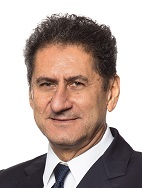
- Francesco La Camera
Director-General, International Renewable Energy Agency (IRENA) - Francesco La Camera took office on 4 April 2019 and brings more than thirty years of experience in the fields of climate, sustainability, and international cooperation.
In his role, he is responsible for leading the delivery of IRENA’s work programme and strategy in cooperation with the Agency’s member states. At a critical time for climate change and the achievement of the Sustainable Development Goals, he is tasked with redefining the structure and operations of the Agency in response to the urgent needs of its members.
Under his leadership, the Agency has forged a series of new strategic partnerships with UN organisations including UNDP, UNFCCC and Green Climate Fund among others. A key priority of his tenure is to implement a more action-oriented approach to the Agency’s work.
Previously, he served as Director-General of Sustainable Development, Environmental Damage, EU and International Affairs at the Italian Ministry of Environment, Land & Sea since 2014. In this capacity, he developed cooperation and partnership agreements with a wide range of countries.
As the national coordinator for climate, environment, resource efficiency and circular economy, he led the Italian delegation to UNFCCC’s COP 21 to 24 and the EU Presidency at COP 20. He was also responsible for the preparation and organisation of Italy’s G7 Environment Presidency in 2017.
- Francesco La Camera
-
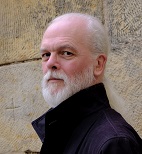
- Mycle Schneider
International Analyst on Energy and Nuclear Policy, Mycle Schneider Consulting - Mycle Schneider works as independent international analyst on energy and nuclear policy. He is the Convening Lead Author and Publisher of the annual World Nuclear Industry Status Report (WNISR). He is a Founding Board Member and Spokesperson of the International Energy Advisory Council (IEAC), USA, and a Founding Member of the International Nuclear Risk Assessment Group (INRAG), Vienna. Since 2007, he has been a member of the International Panel on Fissile Materials (IPFM), based at Princeton University, USA. In 2013, he initiated the Seoul International Energy Advisory Council (SIEAC) advising the Seoul Metropolitan Government, South Korea, and acted as its coordinator until 2019. From 2000 to 2010 he was an occasional advisor to the German Environment Ministry. 1998-2003 he was an advisor to the French Environment Minister’s Office and to the Belgian Minister for Energy and Sustainable Development.
- Mycle Schneider
-

- Stephen Thomas
Emeritus Professor of Energy Policy, University of Greenwich - Stephen Thomas was an Energy Policy Researcher at Science Policy Research Unit, University of Sussex (1979-2000) and then at Public Services International Research Unit, University of Greenwich until his retirement in 2015. He became Professor of Energy Policy in 2006.
In recent years his work has focused on nuclear power policy issues, especially economics, and the potential contribution of nuclear power to meeting climate change goals. He has also researched extensively on EU energy and climate change policy and on the policies of the large European energy utilities.
- Stephen Thomas
-
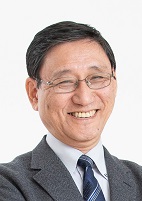
- Tatsujiro Suzuki
Vice Director / Professor, Research Center for Nuclear Weapons Abolition, Nagasaki University (RECNA) - Tatsujiro Suzuki is a Vice Director, Professor of Research Center for Nuclear Weapons Abolition at Nagasaki University (RECNA), Japan. Before joining RECNA, he was a Vice Chairman of Japan Atomic Energy Commission (JAEC) of the Cabinet office from January 2010 to March 2014. He is now a member of Advisory Board of Parliament’s Special Committee on Nuclear Energy since June 2017. He is also a Council Member of Pugwash Conferences on Science and World Affairs (2007-09 and from 2014~), co-chair of International Panel on Fissile Materials (IPFM) and a Chairperson of Japan Association of Disarmament Studies (JADS) from 2019. Dr. Suzuki has a PhD in nuclear engineering from Tokyo University (1988).
- Tatsujiro Suzuki
-
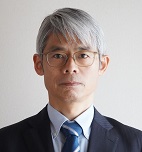
- Kenichi Oshima
Professor, Faculty of Policy Science, Ryukoku University - After serving as an associate professor at Takasaki City University of Economics, a professor at the College of International Relations, Ritsumeikan University, and a visiting scholar at the University of East Anglia and the University of Sussex, he has been in his current position since April 2017. He is also a representative director of the Japan Environment Council and chairperson of the Citizens' Commission on Nuclear Energy.
His publications include The Cost of Nuclear Power (Iwanami Shoten, 2011, 12th Osaragi Jiro Rondan Prize) and The Political Economy of Renewable Energy (Toyo Keizai Inc., 2010, Encouragement Award from the Society for Environmental Economics and Policy Studies).
- Kenichi Oshima
-
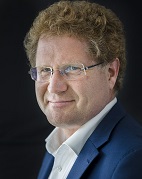
- Patrick Graichen
Executive Director, Agora Energiewende - Patrick Graichen helped build Agora Energiewende in 2012, initially as its Deputy Director; since 2014 he has been heading the think tank in the capacities of Director and Executive Director. During his tenure he ceaselessly gave the right impetus to the policy governing the Climate & Energy in Germany, Europe and other international communities, among other things, concerning power market design, expansion of renewable energies, consensus on coal, thermal energy transition and industrial policies relating to energy turnaround. As in the past, he continues to be constantly in touch with many players, exchanging views on the policies linked to Climate & Energy. In 2018, he was adjudged the Energy Manager of the year by the journal Energie & Management on behalf of a jury.
Prior to joining Agora Energiewende, Graichen worked in the Federal Environment Ministry from 2001 to 2012, first as a consultant in the department for International Climate Protection, then as a personal advisor to the State Secretary and finally as the Head of Unit Climate & Energy Policy. During this period, he was responsible for the negotiations, among other things, on shaping the economic instruments of the Kyoto Protocol, the Federal Government‘s Integrated Energy & Climate Programme of 2007, the EU Climate & Energy Package 2008, as well as the legislative proceedings with regard to the Energy Act.
Graichen has been involved with the topic of energy transition since he was a student. He pursued his studies in political science and economics in Heidelberg, Germany, and in Cambridge, UK; he completed his doctorate on Energy Policies of Municipalities at the Interdisciplinary Institute for Environmental Economics at the University of Heidelberg.
- Patrick Graichen
-
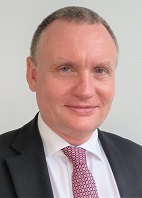
- Dolf Gielen
Director, IRENA Innovation and Technology Centre (IITC) - As director of the IRENA Innovation and Technology Centre in Bonn since 2011, Dolf Gielen oversees the agency's work on advising member countries in technology status and roadmaps, energy planning, cost and markets and innovation policy frameworks.
Before joining IRENA, Dolf Gielen was Chief of the Energy Efficiency and Policy Unit at the United Nations Industrial Development Organization (UNIDO). Previously, he was a Senior Energy Technology Policy Analyst at the International Energy Agency. He was on a Fellowship with NIES Tsukuba Japan, from 2000 to 2002.
- Dolf Gielen
-

- Christian Breyer
Professor for Solar Economy, LUT University, Finland - Christian Breyer’s major expertise is the integrated research of technological and economic characteristics of renewable energy systems specialising in energy system modeling for 100% renewable energy, on a local but also global scale. His team published the most many studies on 100% renewable energy systems for countries or major regions globally. Energy system transition studies are carried out in full hourly and high geo-spatial resolution. Publications cover integrated sector analyses with power, heat, transport, desalination, industry and negative CO2 emission options. Power-to-X investigations is a core research field for his team. He published more than 300 scientific papers, thereof more than 100 in scientific journals. He worked previously for Reiner Lemoine Institut, Berlin, and Q-Cells (now: Hanwha Q Cells). He is member of ETIP PV, IEA-PVPS, scientific committee of the EU PVSEC and IRES, scientific advisory board of CO2 Value Europe, academic council of Global Alliance Powerfuels, chairman for renewable energy at the Energy Watch Group, reviewer for the IPCC and a co-founder of the Desertec Foundation. His academic background is general business, physics and energy systems engineering and a PhD in electrical engineering.
- Christian Breyer
-
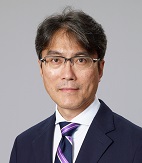
- Tadashi Mogi
Director-General, Energy Efficiency and Renewable Energy Dept., Agency for Natural Resources and Energy, Ministry of Economy, Trade and Industry - As Director-General of Energy Efficiency and Renewable Energy Department since July 2020, Tadashi Mogi oversees the agency's mission on the policymaking for renewable energy, hydrogen strategy, fuel-cell promotion, battery innovation, micro-grid management and energy efficiency. After joining the Ministry of Economy, Trade and Industry in 1992, he has been involved in the various energy policy formation such as oil & gas, mining, marine mineral resource, gas and electricity deregulation, bio-fuel promotion, fuel-cell promotion, energy efficiency regulation.
- Tadashi Mogi
-

- Mikael Nordlander
Head of R&D portfolio Industry Decarbonisation, Vattenfall - Mikael Nordlander joined Vattenfall in 2001 and has held various position in R&D and business development. He has had different responsibilities in strategic projects, mostly in Northern Europe. Since 2016, Mikael is leading Vattenfall’s work on decarbonisation of industrial processes in partnership with large companies, e.g. the HYBRIT project for fossil-free steel with SSAB and LKAB. He holds a MSc degree in Electrical Engineering and Applied Physics from Linköping University and a post graduate diploma in Strategy and Innovation from Oxford.
- Mikael Nordlander
-
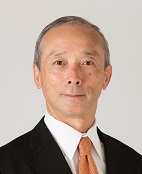
- Jin Kato
President, Japan Wind Power Association (JWPA) - Jin Kato joined Mitsubishi Heavy Industry Ltd. (MHI) in April 1977 and forged a career centered on Power Systems. In 2006 he became General Manager, Power Systems, in the Administration Department of Power Systems Headquarters, moving in 2008 to the position of General Manager in the Sustainability Energy & Environment Strategic Planning Department. After a period in 2011 as Deputy Head of Power Systems, in 2013 he was appointed Deputy Head of Power Systems, Senior General Manager, Wind Turbine Business Division. In 2014 he becameco-CEOat MHI Vestas Offshore Wind A/S,thenin 2017 Vice Chairman of MHI Insurance Services, Ltd., and later in the same year he was appointed Vice Chairman of Japan Wind Development Co, Ltd.
- Jin Kato
-
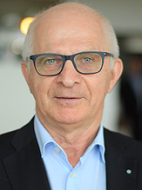
- Bo Normark
Industrial Strategy Executive, KIC InnoEnergy - Bo Normark has for the last 10 years mainly been working for KIC InnoEnergy, a European Public Private Innovation Company founded by the European Commission. InnoEnergys role is to create new industrial activities in the renewable area as well as training future entrepreneurs. The company has activities across Europe and engagement in over 380 startup and early-stage companies in the renewable area.
He is a member of the Royal Swedish Academy of Engineering Sciences and has been leading studies of the future power system in Sweden on behalf of the Swedish Government. He is board member in the Swedish TSO Svenska Kraftnat and Industrifonden, an early-stage venture capital fund initiated by the Swedish Government.
In the past, Bo Normark has 35 years industrial experience from ABB including serving in many managerial roles with global responsibility. Focus was on power transmission equipment including advanced smart transmission grid technologies such as High Voltage DC (HVDC), Flexible AC Transmission (FACTS) and High Voltage Cables. He was serving in multiple countries such as Sweden, Switzerland and US.
- Bo Normark
-

- Niklas Persson
Executive Vice President / Managing Director Grid Integration, Hitachi ABB Power Grids - Niklas Persson joined Hitachi ABB Power Grids’ predecessor in 1997 as an area sales manager for high voltage prod-ucts in the Middle East, since then he has held several senior management positions with global responsibili-ties within the various businesses inside Power Grids. Directly prior to becoming Managing Director of Grid Integration, he was Head of the Company’s High Volt-age Direct Current Business Unit.
Niklas holds a degree in mechanical engineering from Örebro University, Sweden, and numerous diplomas in leadership, management and operational excellence.
- Niklas Persson
-

- Miho Kurosaki
Head of Japan and Korea Research, BloombergNEF - Miho leads analysis and research on energy in Japan and South Korea. Her team covers topics including power market, economics of renewable energy and fossil fuels, energy policy and energy supply demand outlook. She served as a committee member of climate change advisory panel for Ministry of Foreign Affairs of Japan and coal export policy for Ministry of Environment of Japan.
Prior to joining BNEF, she has developed Bloomberg’s Environmental, Social and Governance (ESG) analytics platform as a senior ESG analyst. She has also worked for a London based environmental research firm as an analyst covering environmental risks in portfolio management.
Miho holds an MSc in Environmental Technology from Imperial College London and a BA in Economics from Keio University.
- Miho Kurosaki
-
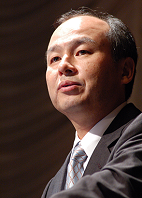
- Masayoshi Son。
Founder and Chairperson, Renewable Energy Institute / CEO, SoftBank Group - Masayoshi Son was born in 1957 in Tosu City of Saga Prefecture, Kyushu, Japan. A year after graduating from the Economics Department of UC Berkeley, Son founded and became Chairman & CEO of SoftBank Corp. Japan (now SoftBank Group Corp.) in 1981. SoftBank Group Corp. went public in 1994, and two years later in 1996, Son launched Yahoo Japan Corporation as a joint venture with Yahoo! Inc. US, running the enterprise first as President & CEO, then became Chairman. In 2001, SoftBank launched the Yahoo! BB broadband ADSL service in partnership with Yahoo Japan Corporation, and later made the high profile acquisition of Vodafone K.K. (now SoftBank Corp.) in April of 2006. In July 2013, Sprint Corporation joined the SoftBank Group and Son became its Chairman. Currently he retains multiple positions including Chairman & CEO of SoftBank Group Corp. and Director of Yahoo Japan Corporation. Son is also known as the owner of the Fukuoka SoftBank HAWKS (a Japanese professional baseball team based in Kyushu). After the Great East Japan Earthquake on March 11, 2011, he founded and assumed chairmanship of Renewable Energy Institute to promote the use of renewable energy.
- Masayoshi Son。
-

- TomasKåberger
Chair of Executive Board, Renewable Energy Institute - Tomas Kåberger has been the Chair of Executive Board of Renewable Energy Institute since its foundation in 2011. Academically, he got an MSc in Engineering Physics, a PhD in Physical Resource Theory, and Docent in Environmental Science at Chalmers. He has been professor in International Sustainable Energy Systems at the International Institute for Industrial Environmental Economics at Lund University, and he is currently affiliate Professor of Industrial Energy Policy at Chalmers University of Technology.
Industrially, he has had leading roles in companies providing fuels and technology in the bio-energy industry, another company developing sustainable energy solutions for the automotive industry, and a company operating wind power plants. He currently serves on the Board of Directors of Vattenfall, and as Industrial Growth Executive of the European company InnEnergy.
Politically, he has served on board of Swedish and European Environmental Citizen’s organizations, several Swedish Government Committees developing energy and environmental legislation, and China Council for International Cooperation on Environment and Development as a member of a task force on Low-Carbon Industrialization Strategies. From 2008 until 2011 he was Director General of the National Swedish Energy Agency. He is also a member of the Swedish Climate Policy Council established in 2018.
- TomasKåberger
-
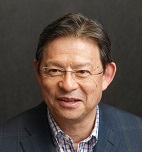
- Takejiro Sueyoshi
Vice-Chair of Executive Board, Renewable Energy Institute - After graduating from University of Tokyo, Takejiro Sueyoshi joined the Mitsubishi Bank (the Bank of Tokyo-Mitsubishi UFJ) in 1967 and worked for the bank until 1998. During his years with Nikko Asset Management as Deputy President, he was appointed as a member of the UNEP FI Steering Committee. In addition to the involvement in the UNEP FI activities in the Asia Pacific Region, he is giving many educational speeches about environmental problems and CSR/SRI in various government councils, seminars, universities and TV programs. Former member of the Council for Japan’s Prime Minister on Climate Change Policy, a Trustee member of Carbon Disclosure Project and Chairperson of WWF Japan since September 2018. His publications include “Ondanka Kogi (A lecture on Global Warming)” (Toyo Keizai), “Yugai Rensa (Chain of Harmfulness)” (Gentousha), “Green New Deal” (Editor, Kankyou Shinbun), “Saishin CSR Jijyo (The Newest Book on CSR)” (Hokuseido).
- Takejiro Sueyoshi
-
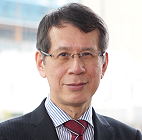
- Teruyuki Ohno
Executive Director, Renewable Energy Institute - Teruyuki Ohno joined Renewable Energy Institute in 2013. He has actively participated in the policy formation of Japan’s climate change measures as a member of the subcommittee of carbon pricing and others led by the Ministry of the Environment Japan. Before joining the Institute, he was Director General of the Bureau of Environment, Tokyo Metropolitan Government for three years, covering a broad range of environmental issues including energy, climate change, waste management, pollution control, natural environment, and sustainable development. His notable achievements include the “No Dirty Diesel Vehicle Strategy in Tokyo” which reduced the air pollution and PM emissions, and implementation of Japan’s first Cap-and-Trade Program in Tokyo in 2008, involving the industries and successfully building a grand consensus. His active leadership in promoting renewable energy and energy efficiency led to the formation of the foundation of Tokyo’s energy policy. He also serves as part-time lecturer at the University of Tokyo, Adviser for ICLEI Japan and Board Member of WWF Japan.
He received the Haagen-Smit Clean Air Award from the California Air Resources Board in 2014. His publications include "Energy Strategies of Municipality Governments" (Iwanami, 2013, Japanese) among others.
- Teruyuki Ohno
-
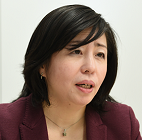
- Mika Ohbayashi
Director, Renewable Energy Institute - Mika Ohbayashi is Director of Renewable Energy Institute since its foundation in August 2011. Before joining the Institute, Ohbayashi worked for the International Renewable Energy Agency, IRENA, based in Abu Dhabi, as Policy and Project Regional Manager for Asia Oceania. She worked at the British Embassy to Japan as Climate Change Project Advisor, and she served as Director at the Institute for Sustainable Energy Policies. She started her career in the energy field by joining the Citizens' Nuclear Information Center in 1992, where she was in charge of energy issues and Asian nuclear power program. She was awarded the Global Leadership Award in Advancing Solar Energy Policy by the International Solar Energy Society (ISES) in 2017.
- Mika Ohbayashi
-
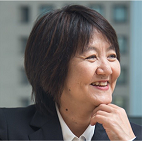
- Yuko Nishida
Senior Manager (Climate Change), Renewable Energy Institute - Yuko Nishida joined Renewable Energy Institute in 2017. She specializes in policy making of sustainable development in cities, sustainable architecture and urban planning. Before joining the Institute, she worked for the Tokyo Metropolitan Government on climate policies and international environmental cooperation projects. She has collaborated with C40 cities, the global network of mega-cities committed to addressing climate change, and was responsible for compiling the publication of “Urban Efficiency,” a series of case studies on energy-saving measures for urban constructions. She has a bachelor’s degree in Political Science from Waseda University and a master’s degree in Public Administration from the Kennedy School of Government, Harvard University.
At Renewable Energy Institute, she is responsible for medium to long-term strategy development and provides support for energy transition projects in the building sector as well as climate change measures for non-state actors such as local governments and the business sector.
- Yuko Nishida






